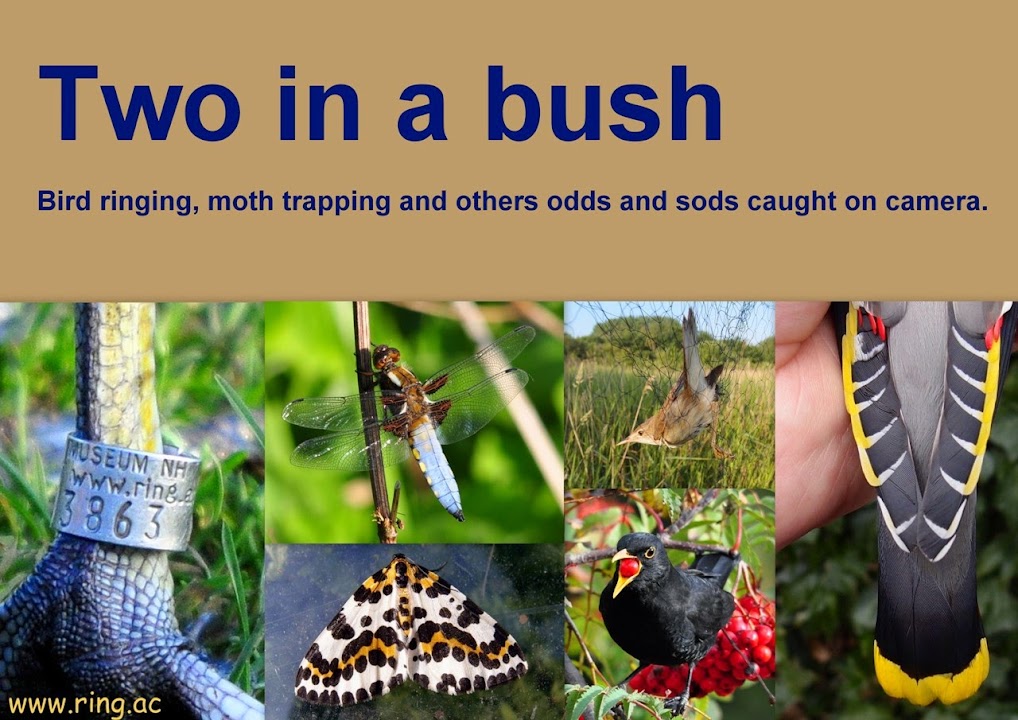The 20th produced my first Wheatear and Stonechat of the spring with a second Stonechat joining the first later on in the morning. The nets only produced a handful of birds but a new Goldcrest will have been a migrant as they don't breed at the site and nearby breeders are already holding territory and singing with increasing frequency. An adult male Chaffinch with a long wing length of 93mm will also have been a migrant and should be heading back to Scandinavia fairly soon.
There were a few more species around on the 21st but it was one of those mornings where you have to work really hard to convince yourself that it was actually worth getting up before 5am. A solitary Brambling was an unconvincing highlight of the 42 species recorded, none of which were new for the year. Again the nets didn't produce much but another adult male Chaffinch of continental origin was caught, this one had a wing length of 94mm and was carrying quite a lot of fat, weighing in at 29.3g. That may not sound very heavy but it is when you compare it to a lean local male Chaffinch that was caught the same morning and only weighed 21.4g. It may have been an uninspiring morning in many respects but better that than staying in bed and wondering what could have been missed.
 |
| This Chaffinch was as fat as it looks. |
The nets weren't much busier than they had been on the previous two mornings but a Redwing was caught at first light and, interestingly, it only weighed 53.2g which is quite light and almost certainly a consequence of the recent severe weather. Two male Goldcrests were caught as they worked their way north through the bushes and it will be interesting to see how the Goldcrest population is judged to have have fared given the recent hard weather. If it turns out that they haven't done too badly it is probably because the cold snaps came at the end of the winter, when the days are much longer, which will have given them more time to find food. Yet another continental Chaffinch was caught, although at 90mm not quite as long-winged as the previous two, but judging by its weight and the fat deposits that could be seen under its skin it was obviously getting ready for a long journey.
 |
| Redwings had a really tough time during the recent cold spells and those that survived will have lost a lot of condition. |
It may be the wrong type of spring at the moment, and it certainly doesn't look like it is going to get much better anytime soon, but I will keep plugging away to see what is moving despite the generally unfavourable weather patterns.


No comments:
Post a Comment